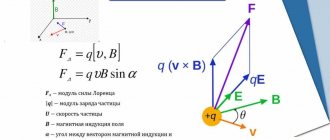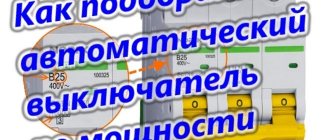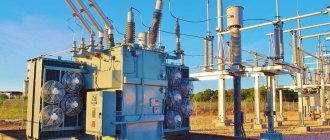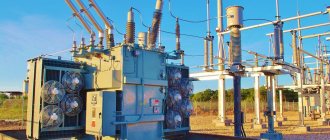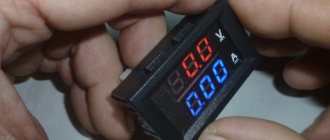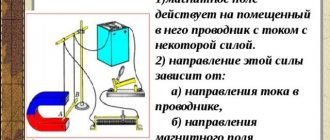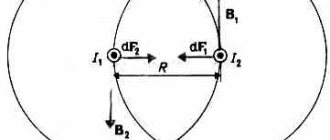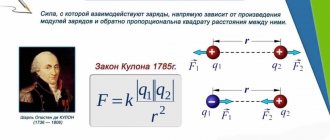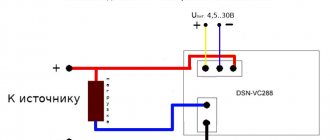Childhood
Andre-Marie Ampère, born on January 20, 1775 in Lyon, was the second child of the wealthy merchant Jean Jacques Ampère and his wife Jeanne Antoinette Desutier-Sarcet Ampère. The boy's father did not believe in academic education, and therefore wanted his son to “learn from nature itself.” Jean Jacques Ampere reads the philosophical works of Jean Jacques Rousseau, and these theories form the basis of Andre's education. Almost throughout his childhood, his father was always close to his son and guided him in his studies. Young Ampere shows great interest in mathematics and geometry, but, to his great regret, there are too few books on these sciences in his home library. And then the father takes his son to the Lyon city library, and a better place for the boy could not be imagined. The only obstacle on the path to the desired knowledge is that most of the works are written in Latin. To satisfy his interest in mathematics, Ampere decides to study Latin. The boy grew up on the works of Leonhard Euler and Daniel Bernoulli.
Andre Marie Family
Ampere was born on January 20, 1775 to Jean-Jacques Ampere and Jeanne Antoinette Desoutier-Sarcy Ampere. Jean-Jacques was a successful entrepreneur. Andre Ampere had two sisters.
The scientist's father was an admirer of the philosophy of Jean-Jacques Rousseau, who believed that young boys should avoid formal education and should instead "learn from their environment." Thus, he did not send his son to school and instead allowed him to enlighten himself through the books in his well-stocked library.
As a child, Ampere was very inquisitive, which was good ground for the development of his further insatiable thirst for knowledge. Under the guidance of his father, he read books on mathematics, history, philosophy and natural sciences, as well as poetry. Along with his interest in the sciences, he was also interested in the Catholic faith, as his mother was a very devout woman.
He was particularly passionate about mathematics and began studying the subject seriously when he was 13 years old. His father encouraged his intellectual pursuits, found specialized books on the subject for his son, and arranged for him to receive mathematics lessons from the Abbé Daburon. At this time, Andre began to study physics.
The French Revolution began in 1789, when Andre was 14. His father was called into public service by the newly installed government and was sent to a small town near Lyon.
Ampère's family suffered tragedy when one of his sisters died in 1792. Another misfortune affecting his family occurred when the Jacobin faction seized control of the revolutionary government in 1792 and guillotined André's father in November 1793. Experiencing these terrible losses, he left his studies for a year. Career Ampère began working as a private teacher of mathematics in Lyon in 1797. He turned out to be an excellent teacher, and students quickly began to flock to him, with the goal of adopting knowledge and becoming a follower of the talented teacher. His success as a teacher attracted the attention of the intellectuals of Lyon to Ampere - they were amazed at the young man’s wealth of knowledge.
Personal life
When the French Revolution entered its decisive stage, Ampère was still very young, and everything that happened left a deep mark on his soul. After the formation of a new revolutionary government, his father was elected magistrate of Lyon. But the revolution leads to a number of tragic events in his life. Due to political differences, Jean Jacques was arrested, and on November 24, 1793 he was sent to the guillotine. Andre takes the death of his father so hard that he even abandons the study of “Mécanique analytique” (“Analytical mechanics”) and abandons his work in mathematics for eight whole months.
He returns to life only when he meets Julie, with whom he falls in love at first sight. The engagement of Andre Marie Ampere and Julie Carron took place in 1797, and in order to provide the future family with a decent financial position, the groom undertakes to give mathematics lessons. In 1799, Andre and Julie married, and in 1800 their son was born, to whom his parents gave the name Jean-Jacques.
Andre Ampere
Andre-Marie Ampère
(French André-Marie Ampère) was born on January 20 (according to other sources January 22), 1775 in Lyon. Andre's exceptional abilities were evident at an early age. He received his initial education at home, very quickly learned to read and arithmetic, read everything, by the age of 14 he had read all 28 volumes of the French Encyclopedia. Andre showed particular interest in physical and mathematical sciences, and his father’s library was clearly not enough here. Andre began visiting the library of the College of Lyon to read the works of great mathematicians.
Studying the works of classics of mathematics and physics was a creative process for the young Ampere. He not only read, but also critically perceived what he read. He had his own thoughts, his own original ideas. At the age of 13, he submitted his first works in mathematics to the Lyon Academy.
In 1789, the Great French Revolution began. These events played a tragic role in Ampere's life. In 1793, a rebellion broke out in Lyon, which was soon suppressed, and André's father, Jean-Jacques Ampère, was beheaded for sympathizing with the rebels.
Andre took the death of his father very hard. Only a year later, with difficulty finding peace of mind, he was able to return to his studies. The execution of the father had other consequences - according to the court verdict, almost all the family’s property was confiscated, and its financial situation worsened sharply. Andre had to think about his livelihood. He decided to move to Lyon and give private mathematics lessons until he could get a job as a full-time teacher in some educational institution.
In 1804, Ampère moved to Paris, and from 1805 to 1824 he worked at the Ecole Polytechnique in Paris. Since 1824, Ampère has been a professor at the College de France.
Ampere's main physical works were devoted to electrodynamics. He formulated Ampere's rule and law and for the first time pointed out the close connection between electrical and magnetic processes and consistently pursued the purely current idea of the origin of magnetism. He discovered the magnetic effect of a current coil; proposed the use of electromagnetic phenomena to transmit signals; invented the commutator, the electromagnetic telegraph; he formulated the concept of “kinematics”. Ampere suggested that in the future, a new science about the general laws of management processes will probably emerge. He proposed calling it “cybernetics,” and his prediction came true.
Ampere died of pneumonia on June 10, 1836 in Marseilles during an inspection trip.
Teacher's wanderings
Ampère continued to give lessons, and in 1802 he was offered to become a teacher of mathematics and chemistry at the Central School of Bourges. Although both sciences are under his jurisdiction, Ampere directs his main efforts to mathematics. His research in the field of “probability theory” in 1803 led him to the Paris Academy, where he presented his work “Mathematical Theory of Games.” But in July of the same year, another personal tragedy occurs in his life: much to his grief, his Julie, who suffered from poor health, dies. Staying in Lyon, where everything reminds of his beloved wife, is already unbearable, and Ampere finally moves to Paris. By that time, he had already earned recognition both for his teaching abilities and for his talent as a researcher in the field of mathematics. And so, in 1804, he entered the service of the Polytechnic School as a “répétiteur” (junior teacher).
In 1809, Ampère, despite the fact that he was self-taught, received the title of professor, which was greatly facilitated by his teaching reputation. He would hold this post until 1828. Professor Ampere even began to give lectures on philosophy and astronomy at the University of Paris, in 1819 and 1820, respectively. The next turning point in his works in the field of science was his acceptance into membership of the Academy of Sciences in 1814.
Career
In 1799 he found permanent work as a mathematics teacher. Within a few years he was appointed professor of physics and chemistry at the Ecole Centrale in Bourg-en-Bresse in 1802. During this time, Andre also researched mathematics and prepared a work for publication entitled "Studies on the Mathematical Theory of Games", 1802.
You may be interested in:Top rated medical universities in Moscow
Ampère became a teacher at the new, newly established Ecole Polytechnique in 1804. In addition to numerous talents in various fields, he also had a gift for teaching. In this regard, Andre became a professor of mathematics at the school in 1809, despite the lack of basic education in the broad sense of the concept (after all, he was taught individually). Ampère was elected to the French Academy of Sciences in 1814. Ampere's biography shows us that hard work is always rewarded.
He also pursued scientific research alongside his academic career and taught disciplines such as philosophy and astronomy at the University of Paris in 1819–20.
Ampere was greatly impressed by Oersted's discoveries regarding electromagnetism, so he took over the research initiative and began working on further discoveries. After careful experiments, Ampere showed that two parallel wires carrying electric currents attract or repel each other, depending on whether the currents flow in the same or opposite directions.
Naturally gifted, with a wealth of knowledge and skills in the exact sciences, Ampère used mathematics to generalize physical laws from experimental results. After years of intensive research and experimentation, Ampère published Reflections on the Mathematical Theory of Electrodynamic Phenomena Uniquely Deduced from Experiment in 1827. The new science of "electrodynamics" was named as such and summarized in this work, which became known as its seminal treatise.
This is a short biography of Andre Ampere.
Works in the field of electrodynamics
In September 1820, at one of the meetings of the French Academy of Sciences, Ampere and his colleagues were presented with the amazing discovery of the Danish physicist Hans Oersted in the field of electrodynamics. This discovery concerns the effect exerted by an electric wire on a magnetized needle. This, in turn, awakens the curiosity of Ampere, who, continuing the experiment, explores the relationship between electricity and magnetism. Within two weeks, he will publish the results of his experiments, which showed that two parallel wires carrying an electric current attract each other if the current flows in the same direction, and repel each other if the current flows in opposite directions. The discovery turns out to be revolutionary and will form the basis of the emerging electrodynamics. Ampere continues to carry out experiments, and includes all the results in weekly reports for the academy. Later they will be published in the work “Chronicles of Experiments in Chemistry and Physics,” which is considered the first work on electrodynamics. He presented his next scientific notes to the public in 1822. All of Ampere’s research and experimental results were widely disseminated, and in 1826 his most significant work, “Scientific Essay on the Mathematical Theory of Electrodynamic Phenomena,” was published. This publication was the source of many 19th century ideas regarding the interaction of electricity and magnetism. This work guided the work of such scientists as Faraday, Weber, Thomson and Maxwell. In search of a suitable name for a new field of science, the term “electrodynamics” appears for the first time. In 1827 Ampere was elected a foreign member of the Royal Society, and in 1828 a foreign member of the Royal Swedish Academy of Sciences.
Death and legacy
In the last years of his life, Ampere suffered from mental disorders and had an aversion to almost all knowledge, and to mathematics and other sciences in particular. On June 10, 1836, in Marseille, he was struck down by a fever, which caused his death. The name of Ampere, which entered science as one of the founders of electromagnetism, was immortalized in 1881 by the signing of an international convention, according to which a new unit of measurement of electrical parameters, the “ampere,” was established. Since then, “ampere” has been the generally accepted unit of measurement of electric current. The scientist’s last work, “Essai sur la philisophie des sciences” (“Analytical presentation of the natural classification of all the knowledge of mankind”), was posthumously published by his son, Jean-Jacques Ampère, who by that time had become a famous literary critic and writer.
Childhood Ampere was born in Lyon in the family of a large businessman; as a child, he read a lot from an early age. One of the main books of his childhood was the French encyclopedia of Diderot and d'Alembert, which he read in full and then quoted from it in adulthood. Andre was educated at home, reading Euler and Bernoulli in Latin. When Ampère was 18 years old, in 1793, his father was guillotined by the verdict of the commissioners of the Convention. This event deeply shocked the young man and he was in a state close to recklessness for almost a year. Mature years In 1799, Ampère married and became a tutor at the Ecole Polytechnique in Paris, then, from 1801, he occupied the chair of physics in Bourque, where he also distinguished himself in literary studies. field, for the first time speaking with the essay: “Considerations sur la théorie mathematique du jeu” (“Discussions on the mathematical theory of games”, Lyon, 1802), thanks to this essay, Ampère, in 1805, received an offer to take a place in the department of mathematics at the Paris Polytechnic school.
During this period, Ampere published a number of mathematical studies devoted to mathematical analysis and theoretical physics, which brought him authority in the scientific world.
In 1814 he was elected a member of the Academy of Sciences, and from 1824 he served as professor of experimental physics at the College de France. Ampère died of pneumonia on June 10, 1836 in Marseille. His name is included in the list of the greatest scientists of France, placed on the first floor of the Eiffel Tower. André Marie's son, Jean-Jacques Ampère (1800-1864), was a famous philologist. Mathematics, mechanics and physics owe important research to Ampere. His main physical work was carried out in the field of electrodynamics.
In 1820, he established a rule for determining the direction of action of a magnetic field on a magnetic needle, now known as Ampere's rule; conducted many experiments to study the interaction between a magnet and electric current; for these purposes he created a number of devices; discovered that the Earth's magnetic field affects moving current-carrying conductors.
In the same year, he discovered the interaction between electric currents, formulated the law of this phenomenon (Ampere’s law), developed the theory of magnetism, and proposed the use of electromagnetic processes for signal transmission. According to Ampere’s theory, magnetic interactions are the result of the interactions of so-called circular molecular currents occurring in bodies, equivalent small flat magnets, or magnetic sheets.
This statement is called Ampere's theorem. Thus, a large magnet, according to Ampere’s ideas, consists of many such elementary magnets.
This is the essence of the scientist’s deep conviction in the purely current origin of magnetism and its close connection with electrical processes.
In 1822, Ampere discovered the magnetic effect of a solenoid (coil with current), which led to the idea that a solenoid is equivalent to a permanent magnet. They were also asked to enhance the magnetic field using an iron core placed inside the solenoid. Ampere's ideas were presented by him in the works "Code of electrodynamic observations" (French "Recueil d"observations electrodynamiques", Paris, 1822), "A short course in the theory of electrodynamic phenomena" (French "Precis de la theorie des phenomenes electrodynamiques", Paris, 1824), “Theory of electrodynamic phenomena” (French “Theorie des phenomenes electrodynamiques”).
In 1826, he proved a theorem about the circulation of the magnetic field.
In 1829, Ampère invented such devices as the commutator and the electromagnetic telegraph. The grave of Ampère and his son In mechanics, he coined the term “kinematics”.
In 1830, he introduced the term “cybernetics” into scientific circulation. Ampere’s versatile talent left a mark in the history of the development of chemistry, which gives him one of the honorable pages and considers him, together with Avogadro, the author of the most important law of modern chemistry.
In honor of the scientist, the unit of electric current is called “ampere”, and the corresponding measuring instruments are called “ammeters”. Some of Ampere’s studies relate to botany, as well as philosophy, in particular “Sketches on the Philosophy of Science” (French “Essais sur la philosophie des” Sciences", 2 vols., 1834-43; 2nd edition, 1857). Notes Act of baptism (French) Soviet encyclopedic dictionary / Ch. ed. A.M. Prokhorov. - M.: Sov. encyclopedia, 1986. - P. 51. - 1600 p. — 2,500,000 copies. — ISBN IB No. 115.^ Go to: 1 2 Andre-Marie Ampere’s profile on the RAS website^ Go to: 1 2 Amelia Fedo. 1793: Jean-Jacques Ampere, father of a savant, for Joseph Chalier, ExecutedToday.com (November 22, 2013). Retrieved February 8, 2021. Ennemond Fayard. Histoire des tribunaux revolutionnaires de Lyon et de Feurs. - H. Georg, 1888. - 390 p.^ Go to: 1 2 Zabarinsky P. P., Polak L. S. Andre Marie Ampere // Science and Life: magazine. - 1936. - June (No. 6). - pp. 49-52. Francois Arago, Pierre Flourens. uvres completes de Francois Arago. - Gide et J. Baudry, 1854. - P. 11. - 720 p.
